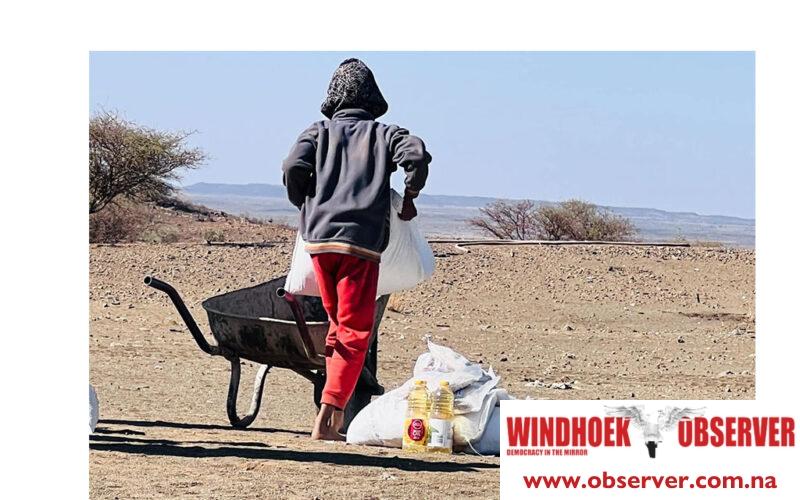Niël Terblancé
Officials from the Keetmanshoop drought relief warehouse, in collaboration with the Namibian Defence Force, have commenced distributing food aid to vulnerable populations in the Barseba Constituency, located in the Kharas region.
This initiative forms part of a broader strategy to ensure that no Namibian goes to bed hungry during the ongoing drought crisis and is a crucial step towards modernising drought relief efforts.
Despite the government’s recent efforts to roll out the e-voucher system, many beneficiaries in the Kharas region continue to receive their drought relief through traditional in-kind distribution.
This dual approach ensures that immediate needs are met while the government transitions to the new system.
Earlier this year, the Office of the Prime Minister began phasing in the Commodity Beneficiary Information Management System (CBMIS), a voucher-based system aimed at improving the efficiency and accountability of drought relief distribution.
The CBMIS was launched by Prime Minister Saara Kuugongelwa-Amadhila last year on 13 October at the Okatana Constituency offices in the Oshana Region.
The pilot study for the CBMIS, which included 1,200 households and 12 retailers, proved successful.
As a result, the government has decided to expand the system to all 121 constituencies across Namibia’s 14 regions.
This expansion is expected to enhance aid delivery and support local economies.
The CBMIS allows beneficiaries to redeem vouchers at selected local retailers, ensuring the timely and transparent distribution of food aid.
This system not only reduces the risks of corruption and delays but also stimulates local markets by increasing business for small and medium enterprises participating in the programme.
Following the decision to roll out the CBMIS nationally, a team from the Office of the Prime Minister started engaging with retailers from the Oshakati East constituency to introduce the new voucher system and raise awareness about its benefits.
At the time, councillors from the Okatyali, Okaku, and Ongwediva constituencies expressed strong support for the CBMIS, praising it as a transformative initiative that will improve the efficiency of drought relief distribution and foster local economic growth.
The team from the Office of the Prime Minister also met with retailers in the Berseba and Tses constituencies to introduce the local authorities to the new system while conducting further market analysis to ensure the programme’s success.
The Namibian government’s commitment to improving drought relief is evident in the comprehensive approach it has adopted.
The continued use of in-kind distribution, coupled with the phased implementation of the CBMIS, demonstrates a commitment to meeting immediate needs while also planning for long-term sustainability.
By involving local retailers in the distribution process, the government not only ensures that aid reaches those in need, but it also empowers communities economically.
This strategy aligns with the broader goals of economic resilience and community development.
By empowering local retailers and ensuring that aid is distributed transparently and efficiently, the country is setting a positive example for other nations facing similar challenges.
The CBMIS is not just a tool for drought relief; it is a catalyst for economic growth and community empowerment.




